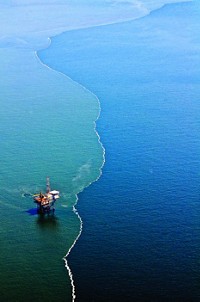Advertisement
Grab your lab coat. Let's get started
Welcome!
Welcome!
Create an account below to get 6 C&EN articles per month, receive newsletters and more - all free.
It seems this is your first time logging in online. Please enter the following information to continue.
As an ACS member you automatically get access to this site. All we need is few more details to create your reading experience.
Not you? Sign in with a different account.
Not you? Sign in with a different account.
ERROR 1
ERROR 1
ERROR 2
ERROR 2
ERROR 2
ERROR 2
ERROR 2
Password and Confirm password must match.
If you have an ACS member number, please enter it here so we can link this account to your membership. (optional)
ERROR 2
ACS values your privacy. By submitting your information, you are gaining access to C&EN and subscribing to our weekly newsletter. We use the information you provide to make your reading experience better, and we will never sell your data to third party members.
Environment
Obama's Energy Plan Stirs Mixed Reaction
Offshore drilling is being used as a political chip in an effort to secure a climate deal
by Glenn Hess
May 3, 2010
| A version of this story appeared in
Volume 88, Issue 18

President Barack Obama’s surprise announcement that he plans to open a large swath of coastal waters to offshore drilling for oil and natural gas is a positive step toward a lower cost domestic energy supply, but it doesn’t go far enough, industry officials say. Environmental groups, however, see a threat to pristine waters and beaches from expanded fossil-fuel production.
The President’s controversial decision comes as the White House hopes to persuade lawmakers to pass sweeping legislation that would cut greenhouse gas emissions and overhaul the nation’s energy economy. The climate/energy issue could emerge as a major battle in Congress this summer.
The Obama Administration’s new oil and gas leasing plan, unveiled on March 31, would lift a decades-old moratorium on offshore drilling along the eastern U.S. coast from Delaware to Florida, in parts of the Gulf of Mexico, and in waters along the north coast of Alaska. But the coastline from New Jersey northward would remain closed to all oil and gas activity. So would the Pacific coast, from Mexico to the Canadian border. The proposal also cancels four scheduled lease sales in Alaska and puts the state’s Bristol Bay region, the site of the world’s largest salmon fishery, permanently off-limits to drilling.
The federal government estimates that the areas under consideration for lease contain between 7.5 billion and 40 billion barrels of oil and gas equivalent—about four years’ worth of U.S. consumption at current rates. But industry executives point out that there has been minimal exploration with modern technology, especially in the Atlantic, so those figures are probably low.
“We believe new leasing off the Atlantic coast, the Gulf of Mexico, and Alaska represents a step toward greater U.S. energy security, lower greenhouse gas emissions, and the creation of a comprehensive energy policy,” says Calvin M. Dooley, president and chief executive officer of the American Chemistry Council (ACC), which lobbies on behalf of more than 130 chemical manufacturers. “More must be done, and we look forward to working with the Administration and Congress to develop policies to expand and expedite domestic oil and natural gas development as part of a diverse energy mix,” Dooley adds.
The chemical industry is the largest energy consumer in the manufacturing sector. Chemical producers are especially reliant on natural gas, using vast quantities both as a source of heat and fuel and as a feedstock in the manufacturing process.
But high and volatile natural gas prices in recent years prompted many companies to move their facilities, dollars, and jobs to countries where gas is cheaper, particularly to the Middle East, where prices were a fraction of those in the U.S. From 1997 to 2008, average natural gas prices in the U.S. jumped more than 160%.
Prices have since dropped sharply, but the assessment of many economists is that the change is due largely to a recession-related decline in industrial demand and is likely temporary. In late 2009, the federal Energy Information Administration predicted that natural gas prices would increase modestly this year as the economy improves. ACC and several industry groups have concluded that the price spikes of the past decade contributed significantly to the nearly 4 million U.S. manufacturing jobs lost since 2000, including 120,000 in the chemical industry.
To expand manufacturing and jobs while reducing carbon emission intensity, Dooley says, the U.S. needs an energy policy that embraces all forms of domestic energy. “That means investing in technologies that enable the environmentally responsible use of our significant coal, nuclear, alternative, and renewable energy sources and fully developing our oil and natural gas reserves, onshore and offshore,” he says.

In describing his energy strategy on March 31, Obama said that allowing some new oil and gas drilling off parts of the country’s shores will help meet the nation’s energy needs while alternative sources of energy are being developed. “This is not a decision that I’ve made lightly,” the President told an audience at Maryland’s Joint Base Andrews Naval Air Facility. “But the bottom line is this: Given our energy needs, in order to sustain economic growth and produce jobs and keep our businesses competitive, we are going to need to harness traditional sources of fuel, even as we ramp up production of new sources of renewable, homegrown energy.”
Obama explained that his proposal is part of a broader strategy that will “move us from an economy that runs on fossil fuels and foreign oil to one that relies more on homegrown fuels and clean energy.”
The President also emphasized the need to move away from dependence on oil and other hydrocarbons that are finite resources. The future, he said, is in renewable energies such as wind and solar and sources such as biofuels. To emphasize the point, he delivered his remarks in front of a Navy F-18 fighter jet, which is being tested with a fuel mix that is half biomass-based.
“We have less than 2% of the world’s oil reserves; we consume more than 20% of the world’s oil,” Obama noted. “What that means is that drilling alone cannot come close to meeting our long-term energy needs, and for the sake of the planet and our energy independence, we need to begin the transition to cleaner fuels now.”
Environmental advocates say they are disappointed that the Arctic coast and much of the south and mid-Atlantic coasts will be opened to oil and gas development. Opposition to offshore drilling has been one of the galvanizing forces of the environmental movement for the past 40 years.
“Where there is offshore drilling, there is a constant danger of oil spills,” says Michael Brune, executive director of the Sierra Club. “One oil spill is all it takes to destroy a coastal tourism economy and the jobs that depend on it.”
The April 21 oil rig explosion in the Gulf of Mexico is a timely example of Brune’s point. The blast, which reportedly killed 11 people, caused the rig to sink and the well to leak an estimated 42,000 gal of oil per day into the Gulf. Marine life has been directly affected, and the oil threatens to reach the Louisiana coast.
“This terrible tragedy is a sad reminder that oil is dirty, dangerous, and deadly,” says Athan Manuel, director of the Sierra Club’s land protection program. “More offshore oil drilling has no place in a clean energy future.”
On the other hand, industry groups say they are encouraged that the Obama Administration recognizes the importance of developing the country’s oil and natural gas reserves to create jobs and enhance energy security. But they caution that even if the areas proposed for new drilling are ultimately leased, it will take years to exploit the resources. And they say the plan leaves enormous amounts of U.S. energy off-limits.
Obama’s proposed oil and gas leasing plan “appears to be a smaller step forward than what is needed,” says Karen Harbert, president and CEO of the Institute for 21st Century Energy at the U.S. Chamber of Commerce, the world’s largest business federation. The new plan does create the potential for new areas of exploration. “But at this stage, that’s all it is—potential,” Harbert says. “Much of what is promised is many years away, subject to more study and congressional action. What is needed today is urgent action, not analysis.”
The plan authorizes the Department of the Interior to conduct seismic surveys off the south and mid-Atlantic coasts to “determine the quantity and location of potential oil and gas resources to support energy planning,” according to a White House statement.
Roughly two-thirds of available oil and gas resources in the eastern Gulf of Mexico would be opened to drilling if a congressional moratorium is lifted. Drilling would occur more than 125 miles off the Florida coast.
In his March remarks, Obama said he hoped his willingness to allow more fossil-fuel production in offshore areas that have been long closed to drilling would encourage Republicans and moderate Democrats to support his larger climate and energy initiative.
“I know that we can come together to pass comprehensive energy and climate legislation that’s going to foster new energy, create millions of new jobs, protect our planet, and help us become more energy independent,” Obama remarked. The President added that he is “open to proposals” from Democrats and Republicans.
The debate over energy policy in Congress has been dominated by a plan to cut U.S. greenhouse gas emissions through a cap-and-trade program, in which companies would buy and sell a declining number of carbon permits. Cap-and-trade legislation narrowly passed the House of Representatives last June. A similar plan has stalled in the Senate.
Sens. John F. Kerry (D-Mass.), Lindsey O. Graham (R-S.C.), and Joseph I. Lieberman (I-Conn.) have been leading efforts to revamp the proposal so it can pass this year. The trio’s draft legislation is designed to reduce greenhouse gas emissions while expanding domestic production of oil and natural gas, as well as nuclear power. The bill’s introduction is currently in question, though, because of a dispute over Democratic efforts to bring up an immigration reform package ahead of the environmental legislation.
Republicans and oil-state Democrats have made offshore drilling a key bargaining chip in trying to get even a scaled-back climate and energy bill passed before the November midterm elections, when Democrats are expected to lose seats in both chambers of Congress. Linking offshore drilling and nuclear power with a cap-and-trade plan for limiting carbon dioxide emissions is a winning formula for getting the 60 votes needed to push the measure through the Senate, according to Graham.
“The time has come for our nation to embrace comprehensive, game-changing energy policies which lead to energy independence,” Graham said in a statement. “The incremental changes we have adopted in the past have simply led to more and more dependence on foreign oil.”
Several Senate Democrats, including Alaska’s Mark P. Begich and Louisiana’s Mary L. Landrieu, have urged the Administration to use a climate bill to help boost domestic energy production through expansion of oil and gas drilling.
“Alaska holds some of North America’s largest reserves of oil and natural gas,” Begich notes. “Responsibly developing these reserves is vital for America’s energy independence and security and would be a shot in the arm to our economy when we sorely need it.”
“This is the absolute right step for the country,” Landrieu says. “Expanded onshore and offshore drilling for oil and natural gas creates high-quality jobs here in America while making our country more secure and less dependent on oil from unstable and often hostile governments.”
The President, she adds, is “sending as clear a signal as possible that he is willing to compromise in a way that will bring forth a great energy and climate bill, and he wants Republicans to be a part of it.”
But other coastal-state Democrats, such as New Jersey’s Sens. Robert Menendez and Frank R. Lautenberg, say they will oppose any legislation that includes an expansion of offshore drilling.
“It’s fundamentally wrong as an energy policy when we can drive toward renewable energy sources. I think the Administration is wrong on this, and they are going to have an adversary,” Menendez says. “It’s an effort to bring Republicans on board with broader climate-change legislation, and I think it’s a dangerous plan.”
Lautenberg notes that Jersey Shore tourism is being put at risk because an oil spill would cause severe damage to coastal areas. “Giving big oil more access to our nation’s waters threatens to kill jobs, marine life, and coastal economies that generate billions of dollars,” he says.
Opponents of offshore drilling have also seized on last month’s oil rig explosion, noting that the blast has led to a massive oil spill in the Gulf of Mexico. “Big oil has perpetuated a dangerous myth that coastline drilling is a completely safe endeavor, but accidents like this are a sober reminder just how far that is from the truth,” Menendez and Lautenberg said in a joint statement.





Join the conversation
Contact the reporter
Submit a Letter to the Editor for publication
Engage with us on Twitter